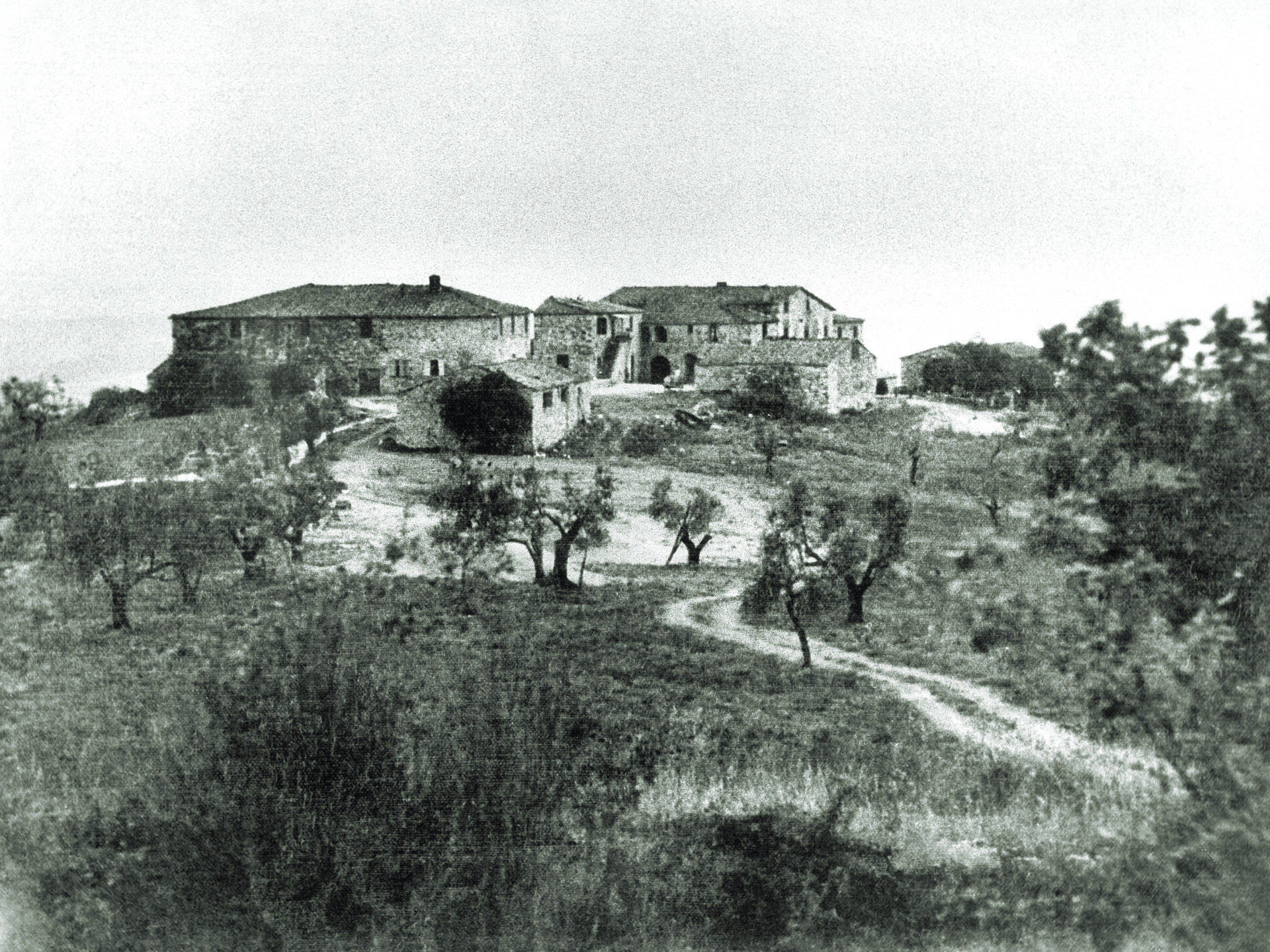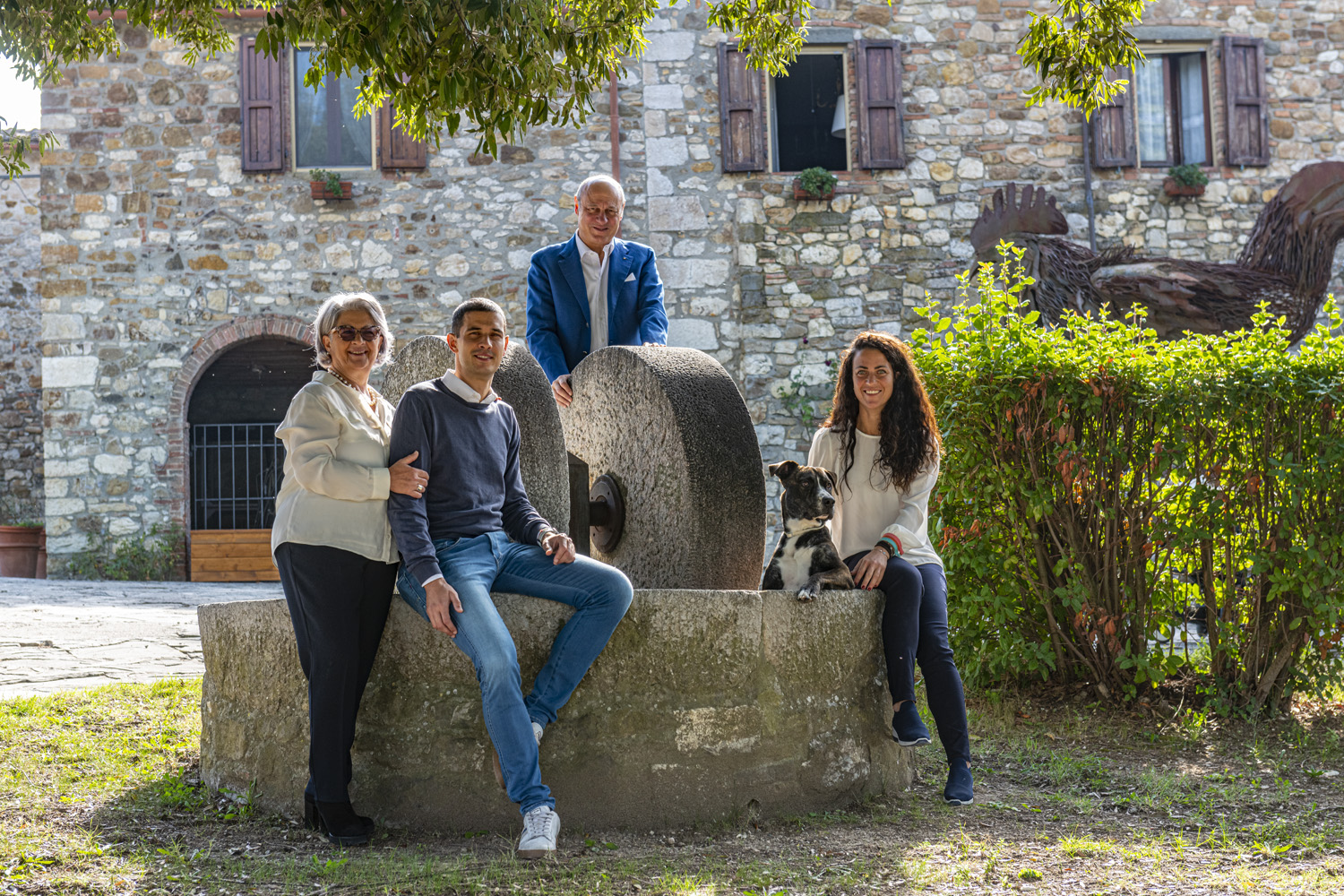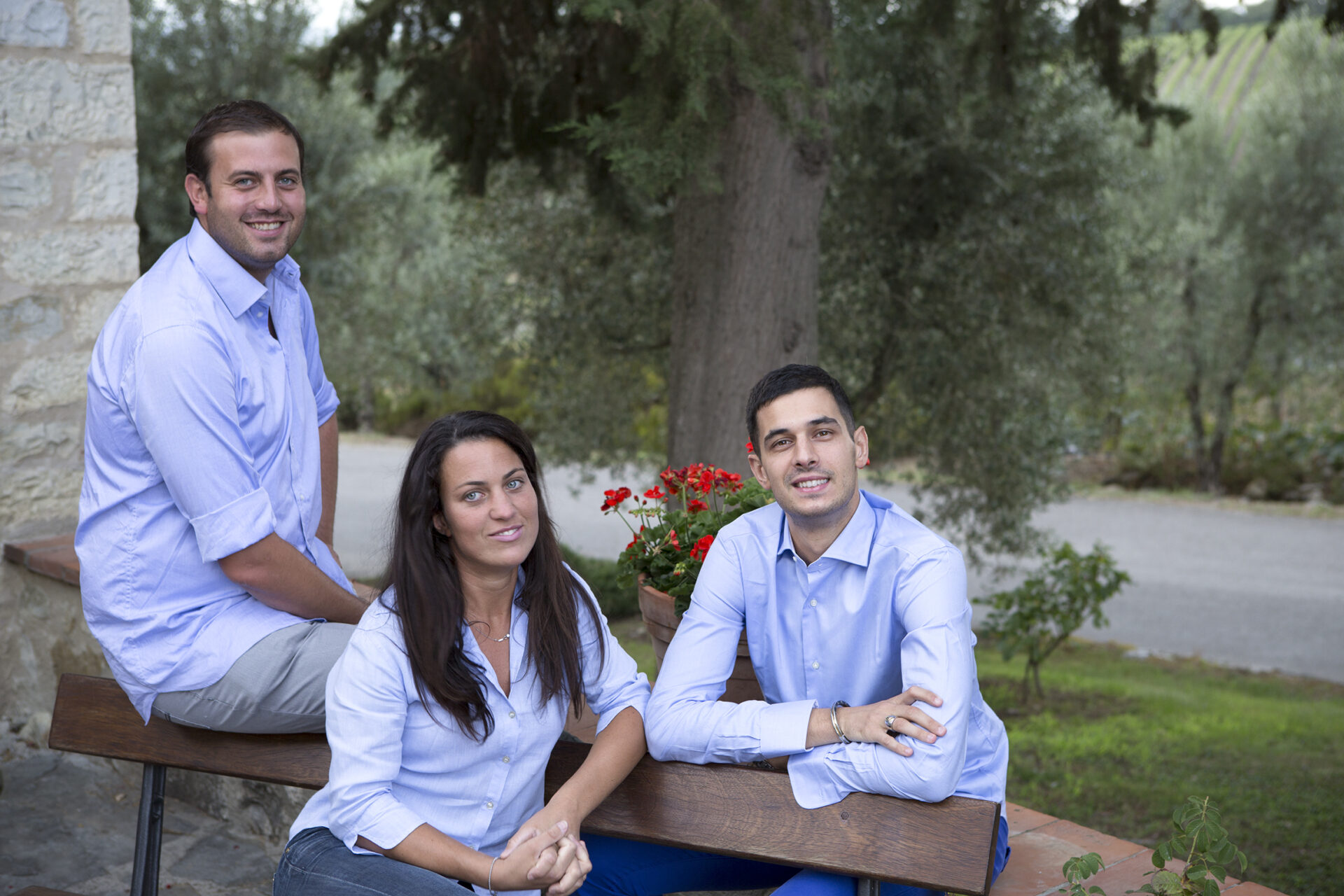HISTORY
PASSION
TERRITORY
ITALO ZINGARELLI
Rocca delle Macìe was created in 1973, when Italo Zingarelli – producer of the film C’eravamo tanto amati by Ettore Scola as well as the very popular ‘Trinity’ film series starring Bud Spencer and Terence Hill (including They Call Me Trinity and Trinity is Still My Name) – decided to fulfil his lifelong dream with the purchase of the 93-hectare Le Macìe estate, only two hectares of which were under vine at the time, bringing it to life as a wine-growing estate in the heart of Chianti Classico. Italo was a generous man who loved life, gifted with insight and farsightedness, and a noble example of a self-made man.
HISTORY
LA STORIA

1930
Italo was born in Lugo di Romagna on 15th January. His father was principal of the Liceo Reale Ginnasio.
1949
During his early “career” as a boxer, he starts working in films, first as an extra and stuntman, then as a production technician and lastly, from 1954 (having left boxing behind) as the production manager of many films.


1955
In 1955 he marries Laura Spano, who will give him three children – Fabio, Sandra and Sergio – and remain at his side throughout her life, devotedly supporting him in all of his projects. In 1958 he produces his first film, “La rivolta dei Gladiatori”.
1970
In 1964 he opens his own production company and later sets up a film distribution company, DELTA, bringing us many successful films including “They Call Me Trinity…” (1970), “…Trinity is Still My Name” (1971), and “All The Way, Boys!” (1972) as well as co-production credits on successful international films like “C’eravamo Tanto Amati” (1974).


1973
Bucking the trend to flee the countryside in search of work in the city, Italo buys a 14th century hamlet near Castellina in Chianti and subjects it to careful architectural renovation, fulfilling a lifelong dream he shares with his wife: a wine-growing estate in the heart of Tuscany, Rocca delle Macìe.
1984
The purchase of the Fizzano hamlet, which dates back to the 11th century, extension of the wine-growing potential of Chianti Classico and further development of the hospitality sector with a project to renovate the hamlet, creating the Relais Riserva di Fizzano.


1985
Sergio starts working with his father who marks the occasion by dedicating their first “SuperTuscan” to his son: Ser Gioveto. Since then, Sergio, has consolidated and developed his father’s estate, bringing it firmly into the public eye worldwide.
1988
The second SuperTuscan, Roccato, is Sergio’s first fine quality project, a blend of the traditional and the contemporary: Sangiovese and Cabernet Sauvignon, large casks and barriques. A new process of vineyard renovation begins in 1995 with replanting of the vineyards planted in ’70 by Italo, with increased attention to grape quality.


1998
In the wake of the enthusiasm for discovering new areas suited to wine-growing, the purchase of the first Maremma estate, CampoMaccione, is followed in 2003 by the second, Casa Maria, for a total of 50 hectares under vine today.
2010
The first vintage of the Chianti Classico Gran Selezione Sergio Zingarelli, a project started in 2000, with the replanting of the “Le prese” vineyard, in the pursuit of excellence.


2020
On 10th June, the inauguration of the new restaurant in the hamlet of Fizzano, Passo dopo Passo Osteria, in collaboration with chef Maurizio Bardotti.
2021
The first release of the Vermentino 100% created by Andrea Zingarelli and produced in Maremma in the Casa Maria estate: Vigna L’Aja Bruciata is designed to test the ageing potential of Vermentino.

PASSION
FAMILY
The history and philosophy of Rocca delle Macìe are inextricably linked to the union and importance of the Zingarelli family. Their dedication and passion, for the land and for wine, have been handed down from father to son and continue to be nurtured for the next generations.
Today, it is a modern and innovative estate on the outside, but with a family spirit and hospitality: attentive to the latest technology when it comes to production, but reliant on characters in whom the family places the greatest truest, people who have been at Rocca forever, or have received precious and irreplaceable knowledge from previous generations.
The family export wine all over the world, aiming to tell the story of a unique territory, and a grape variety, Sangiovese, that represents absolute excellence in the field of oenology and agronomy.
Italo Zingarelli’s three children – Sandra, Fabio and Sergio – have each brought a different contribution to the estate, making it what it is today: a family-run, dynamic business in the sincerest sense of the word, where employees have always played an integral role.
Sergio Zingarelli, the chairman, started working with his father in 1985. After four years he took over the helm, with his wife Daniela, and they moved permanently from Rome to Castellina in Chianti. Since then, with the help of his siblings, his wife and now the third generation, too, Sergio has been devoted to the consolidation and development of his father’s estate, definitively bringing it to the attention of the world at large.
Sergio’s children, Giulia and Andrea, were born and bred in Rocca della Macìe and have been passionately involved for some years now. Giulia is the link between Rocca and the Fizzano Estate where the Relais and the restaurant “Osteria Passo Dopo Passo” are located, while Andrea supports his father in the general management of the estate on a daily basis. His nephew Fabio and his mother Sandra not only play a role in managing film rights, but also take care of some commercial aspects.
Driven by his dedication and attachment to the local territory, following in his father’s footsteps, Sergio has always been involved in the activities of the Chianti Classico Consortium, of which he was Chairman for two terms (2012-2015 and 2015-2018), and is now Vice Chairman.


Philosophy
The Zingarelli family has consolidated a ‘Global Quality’ programme over the years.
It actually dates back to the 1990s when Sergio Zingarelli decided to begin a new era of wine-growing with the primary objective of obtaining grapes of the highest quality and embarking on an oenological process aiming for excellence in both grapes and wines. The real gear-change was felt in 2010 with the beginning of a collaboration with a new consultant: agronomist and oenologist Lorenzo Landi, who still supports the family today (particularly Andrea Zingarelli and his team of technicians) in the trickiest choices.
Today, producing wines that are ‘good to drink’ has become a prerequisite, but a wine must be ‘good to think’ too and, therefore, good to talk about. It must be perceived as an emotion, a ‘wine landscape’ able to bring to life what is outside the glass.
In a nutshell, there has been a shift from quality winegrowing, which regarded vineyards as a means of obtaining wine, to looking at individual plots (uniform portions that make up a vineyard) as a way to obtain wines that express a distinct territorial character.


TERRITORY



SUSTAINABILITY
A fundamental step was taken in 2000 when we abandoned the use of many environmentally invasive techniques and adopted a strict and careful internal sustainability protocol. Our practices aim to reduce and rationalise the consumption of non-renewable resources such as water, air and soil, avoiding unnecessary waste of natural resources and limiting the impact of human activities on the balance of the ecosystem as much as possible.



In the vineyard, we are constantly searching for cutting-edge techniques combined with those rooted in tradition, for monitoring, control and maintenance. The use of phytosanitary monitoring and warning systems through the installation of weather stations; mapping of the state of vineyard health using infrared methodologies; monitoring of harmful insects and the introduction of antagonistic insects; sexual confusion using pheromones; beekeeping at the edges of the vineyards; the use of organic fertilisers and green manure; and the recovery of rainwater and wastewater: these are just some examples of the careful work carried out by the Rocca delle Macìe team over the years.
This path was corroborated in 2021 by a specific certification process for the wine-growing sector, VIVA, which aims to improve the sustainability performance of the entire wine-growing process through the analysis of four scientifically recognised indicators, developed on the basis of international standards and regulations: Air (climate footprint), Water (water footprint), Vineyard (impact of agronomic management practices) and Territory (socio-economic-cultural impact).
“Through this project,” concludes Sergio Zingarelli, “we’re aiming to shine a light on all our efforts, making them more communicable even in difficult economic periods, along with the activities we have carried out in more than two decades.”

